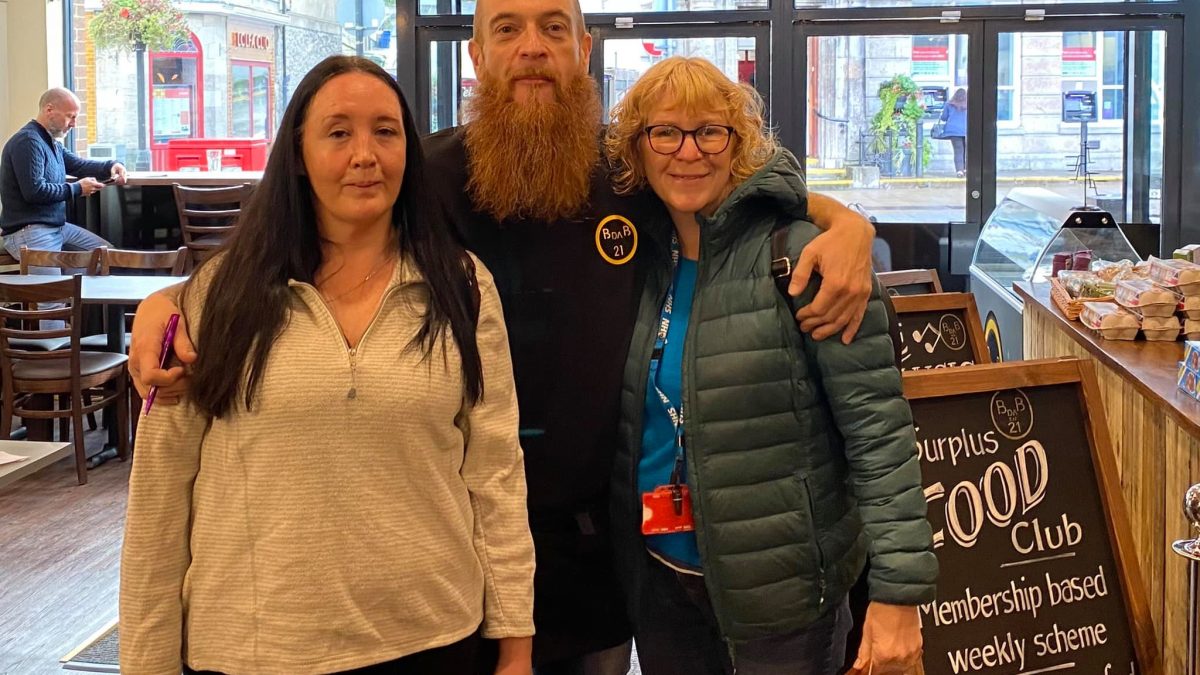James Deakin spent a number of years working in the mental health and addiction field before deciding that he had become disillusioned by the organisations and the commissioning process. At the same time, he loved working with ‘clients’ and was inspired by people like Mark Gilman, the late Rowdy Yates and David Best. He decided that he needed to develop a recovery community. That disillusionment and inspiration led to the development of North Wales Recovery Communities (NWRC).
I found it very interesting to hear James’s experiences within the treatment system during my interview with him.

1. Working in the Mental Health Field [5’22”]
After ten years as a chef, James started working in the mental health field. He had originally intended to do this for six months before heading to university, but he loved the job so much he ended up staying for four years. He worked, as part of a three-man team, with sex offenders who were locked up in a secure unit.
James was shocked when he read his first case file, belonging to a boy who had been repeatedly sexually abused as a child. What was in the file challenged his preconceptions he had about sex offenders. ‘Not everything in life is black and white.’ He started to believe that rehabilitation is a fundamental right, particularly for lads like he saw who had such traumatising abusive childhood experiences.
James became disillusioned, and eventually left the job, when a person who had been doing well had his support reduced and then lost his support team, and as a result started taking backward steps. James developed a cynical view of certain organisations working in the field and their agenda.
2. Drug Interventions Programme (DIP) Worker [10’04”]
James points out that his options and opportunities were never great due to his upbringing, social circumstances, and poor education in Manchester. Whilst working in the mental health field, he started to think that there must be other people who had gone through what he had gone through, and who wanted to move on from a life of crime and drug use. He emphasises that for him, the most important thing was ‘being straight’–that was a harder part than abstaining from drugs. At the time of his problems, he had no idea of what ‘being straight’ involved.
These sorts of thought influenced James’s decision to move into the next stage of his career. He spent eight years working as a Drug Interventions Programme (DIP) Worker. When he first entered this field, James had a very good commissioner. The original ethos of DIP was spot-on—get people out of crime and into treatment. He loved his work with service users because he could effect change at an individual level. However, over time he learnt that ‘the whole treatment industry stuff doesn’t work.’
James got involved in some really interesting research. He was working with a group of lads who exhibited symptoms of ADHD (Attention Deficit Hyperactivity Disorder). They’d come in to be drug-tested and participate in group work, but they would just fidget around, engage in distracting activities, and not focus or retain anything. James suggested to the probation officer that they tell the group there would be no drug testing the following week.
The group came in the following week, obviously having been using drugs, and sat there for two hours—focused, listening, contributing, retaining information, and learning skills. The probation officer couldn’t get over the difference. James explained that their drug-taking was self-medication—some people take stimulants to get high, whereas these guys were taking them just to feel chilled and focused.
James also did some addiction recovery coaching and guided relaxation. The vast majority of the service users had never experienced such things, since they just came in for a methadone script. He tells the story of a worker who was seeing a client for the first time, explaining that he just wanted to go through what help the client had been receiving, what his plans were, etc. The bloke replied, ‘Listen mate, I’ve been coming here for six years now. I’ve never had to f…… speak to anybody once. Don’t f… me about, just give me the script, the taxi is waiting outside.’


